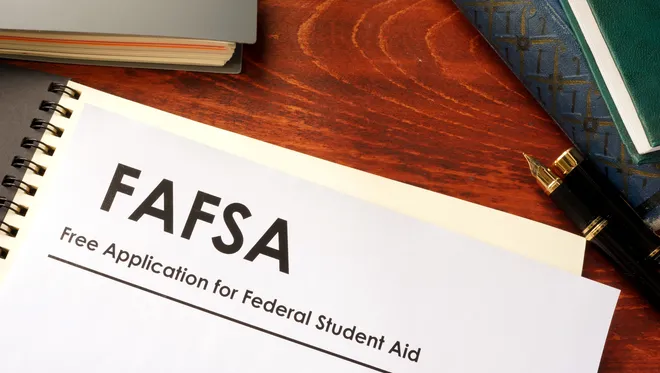Delays. Processing errors. FAFSA can be a nightmare. The Dept. of Education is stepping in
After another frustrating delay with the Education Department’s rollout of changes to the college financial aid system, officials are trying to help colleges adapt.
The agency said on Monday it will soon deploy dozens of experts to under-resourced institutions. It also plans to distribute a $50 million donation to educational nonprofits, in an attempt to soften the blow from recent challenges with the launch of the new Free Application for Federal Student Aid, or FAFSA, a form that millions of families use each year to get help paying for college.
In particular, the support is coming in hopes that high school seniors and transfer students across the country have a reasonable amount of time to compare their financial aid offers from different schools before they make their final decisions.
On a call with reporters Monday, Education Secretary Miguel Cardona said that while he understands recent delays with the form have been frustrating for colleges and universities, they've aggravated him, too. He continued to suggest there are families reporting that the now-simplified form has been easier to fill out this year than ever before.
He laid part of the blame on Washington gridlock.
Learn more: Best personal loans
“We’ve been asked to deliver more with less,” he said, “as Congress continues to flat-fund federal student aid despite the transformational work we’re doing.”

What is the Department of Education planning to do?
- The plan is to deploy at least 50 federal student aid experts in the next three weeks to under-resourced schools, including historically Black colleges and universities and tribal colleges and universities.
- The Education Department will also set up a financial aid “concierge service” in the next 24 hours for schools to contact for help.
- Over the next couple of months, the agency will disburse $50 million to nonprofits for additional technical assistance and support.
- Within the next two weeks, officials will release new tools and test data to help colleges and universities ready their processing systems.
Explore all your options:FAFSA freaking you out? It's usually the best choice, but other financial aid options exist
The department emphasized that the additional help will accelerate its ongoing work to debug the new FAFSA. Officials said they remain confident all students applying for financial aid will receive what they need to attend college, despite glitches that remain unresolved.
"Ensuring our nation’s colleges and universities are prepared to assist in the massive overhaul of the FAFSA is critical for a smooth implementation, and we are excited to be partners in this work," said Justin Draeger, president of the nonprofit National Association of Student Financial Aid Administrators (NASFAA), in a statement. NASFAA, which has been critical of the Biden administration’s less-than-perfect reform of the FAFSA, is one of the beneficiaries of the $50 million in funding to help students and schools.
For the 2024-25 school year, the FAFSA was reduced to just 36 questions from 108, including detailed financial information. The Education Department also made it easier for families to import their income data from tax records.
Along with the pared-down form, the federal government altered its formulas to determine who will qualify for aid and how much money they’ll receive. The long-awaited changes fulfill legislation passed in 2020.
Disclaimer: The copyright of this article belongs to the original author. Reposting this article is solely for the purpose of information dissemination and does not constitute any investment advice. If there is any infringement, please contact us immediately. We will make corrections or deletions as necessary. Thank you.







